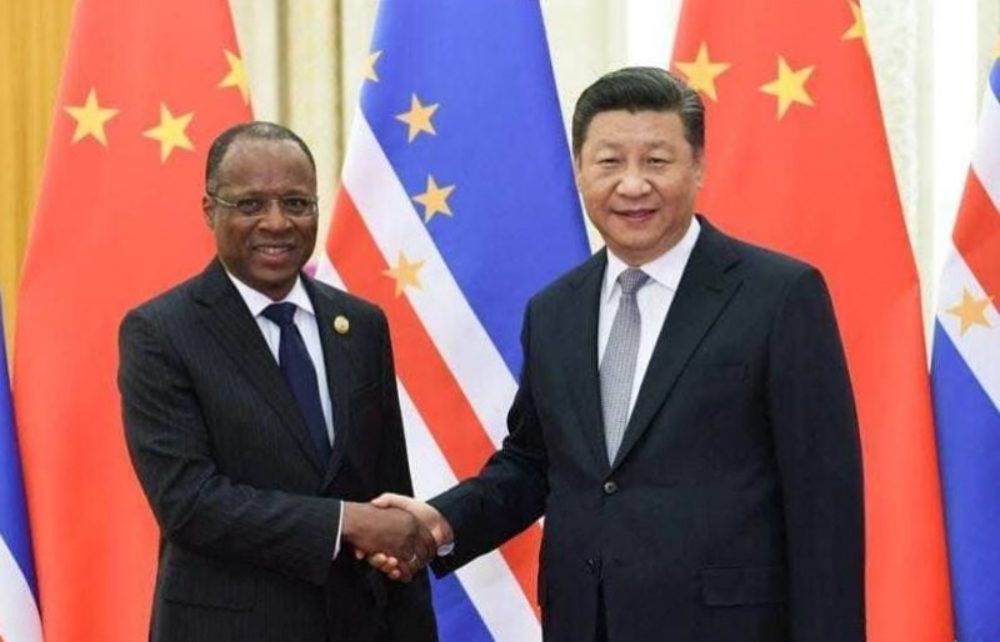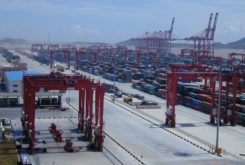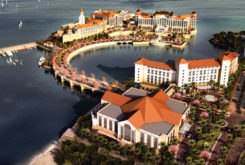Cabo Verde has the highest positive view of China’s economic and political influence, and Angola one of the lowest, among 18 african countries surveyed by Afrobarometer in 2019/2020.
According to the survey, majorities in 12 of 18 countries hold positive views of China´s influence, with a high of 85% in Cabo Verde, 6 points above a previous poll in 2014-15.
In Angola, only 43% of respondents consider ‘somewhat positive’ or ‘very positive’ the economic and political influence of China in their country, the third lowest among 18 countries.
About six in 10 Africans (59%) say the economic and political influence of China in their country is “somewhat positive” or “very positive,” while only about one in seven (15%) consider it negative. Views on U.S. influence are almost identical (58% vs. 13%).
Afrobarometer says national surveys in 18 African countries in 2019/2020 “show that while Africans hold positive views of China’s assistance and its political and economic influence on the continent, its perceived level of influence on African economies has nonetheless waned somewhat over the past five years”, with China remaining second to the United States as Africans’ preferred development model.
On average across 18 countries, China trails the United States as Africans’ preferred development model (32% vs. 23%), followed by former colonial powers and South Africa (11% each).
This is also the case in Cabo Verde, where the U.S. is considered the best development model for 43% of respondents, 9 point bellow the 2015 results. The percentage of respondents that identify China as the development model also slipped, from 21% to 14%.
In Angola, 45% of respondents identify the U.S. as the development model, and 43% China.
Asked ‘How much influence do you think China’s economic activities have’ in their country have, 78% of respondents in Cabo Verde, and 51% in Angola, say ‘some’ or ‘a lot’.
While a majority (55%) of Africans say China’s economic activities in their country have ‘some’ or ‘a lot’ of influence on their economy, that proportion has declined sharply over the past five years.
Among the 48% of African citizens who are aware of Chinese loans or development assistance to their country, almost eight in 10 (77%) are aware that loans must be repaid and a majority (58%) say their government has borrowed too much money from China.
And among those who are aware of Chinese loans and development assistance to their countries, majorities are concerned about being heavily indebted to China.
67% of respondents have heard of Chinese loans in Cabo Verde and 52% in Angola, both significantly above average.
Angola is the third country where respondents consider that the Government has borrowed too much money from China (75%), behind Kenya (87%) and Namibia (78%).
“Africans still prefer the United States over China as a development model for their country (…) but appear to welcome foreign engagement that meets their priorities, whether it originates in China or the United States”, Afrobarometer adds.
Afrobarometer is a pan-African, non-partisan survey research network that provides reliabledata on African experiences and evaluations of democracy, governance, and quality of life. It conducts face-to-face interviews in the language of the respondent’s choice with nationally representative samples that yield country-level results with margins of error of +/-2 to +/-3percentage points at a 95% confidence level.
This dispatch draws on data from 26,777 interviews completed in the first 18 Round 8 countries between July 2019 and April 2020 (see Appendix Table A.1 for a list of countries and fieldwork dates). The data are weighted to ensure nationally representative samples. When reporting multi-country findings such as regional or Africa-wide averages, all countries are weighted equally (rather than in proportion to population size).




